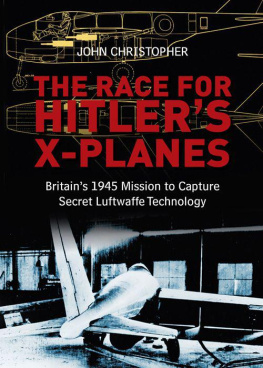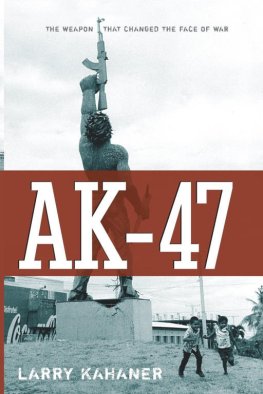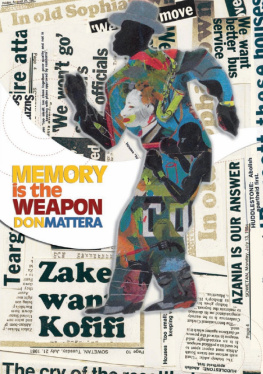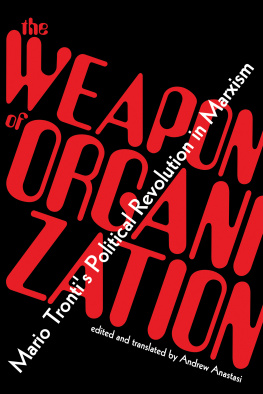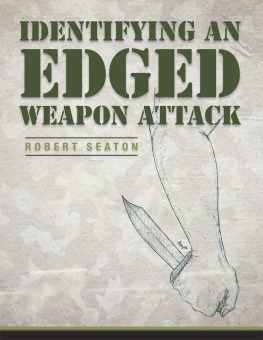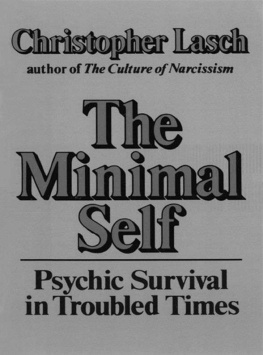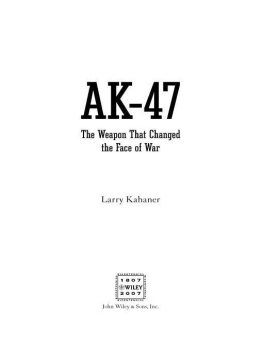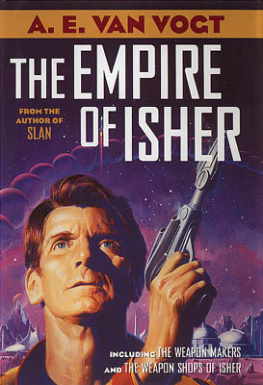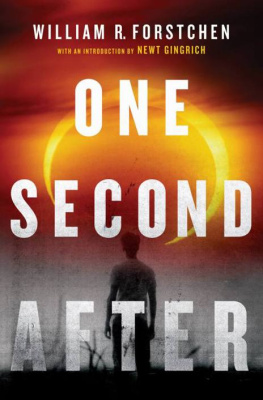John Christopher - Weapon
Here you can read online John Christopher - Weapon full text of the book (entire story) in english for free. Download pdf and epub, get meaning, cover and reviews about this ebook. year: 1954, publisher: Grayson & Grayson, genre: Science fiction. Description of the work, (preface) as well as reviews are available. Best literature library LitArk.com created for fans of good reading and offers a wide selection of genres:
Romance novel
Science fiction
Adventure
Detective
Science
History
Home and family
Prose
Art
Politics
Computer
Non-fiction
Religion
Business
Children
Humor
Choose a favorite category and find really read worthwhile books. Enjoy immersion in the world of imagination, feel the emotions of the characters or learn something new for yourself, make an fascinating discovery.

- Book:Weapon
- Author:
- Publisher:Grayson & Grayson
- Genre:
- Year:1954
- Rating:5 / 5
- Favourites:Add to favourites
- Your mark:
- 100
- 1
- 2
- 3
- 4
- 5
Weapon: summary, description and annotation
We offer to read an annotation, description, summary or preface (depends on what the author of the book "Weapon" wrote himself). If you haven't found the necessary information about the book — write in the comments, we will try to find it.
Weapon — read online for free the complete book (whole text) full work
Below is the text of the book, divided by pages. System saving the place of the last page read, allows you to conveniently read the book "Weapon" online for free, without having to search again every time where you left off. Put a bookmark, and you can go to the page where you finished reading at any time.
Font size:
Interval:
Bookmark:
Weapon
by John Christopher
I suppose they thought they had to have one representative of the Army along; possibly I got the invitation because I was once reported as saying that not all politicians were stupid and corrupt. I went on to say that in my view those that were not stupid were corrupt and vice versa, but that part was left out. Anyway, there I stood, on a bright spring morning, an island of brass entirely surrounded by civilians. It was easy to tell the politicians from the scientists. It was a scientists occasion; the politicians, for once, looked abashed.
Professor Norwood, who had a reputation that even I could be expected to have heard of, called us to order.
Gentlemen, he said, andhe smiled towards meGeneral Sands, before we go next door I think it may be as well to say a few words. You all have some idea of the importance of our meeting here, and some of my colleagues, of course, know more about the actual work than I do, but there will be othersanother friendly smile for the generalwho are still in the dark as to what has been going on. That is natural enough, because it has been kept very secret. And it has been kept very secret because it represents the greatest weapon thisor any other countryhas ever had.
That depressed me, of course. There is a belief that soldiers enjoy hearing about new weapons, but it is a belief strictly confined to civilians. No new weapon has ever been anything but a nuisance to the men who have to administer the army, however necessary it was.
Our present research, Professor Norwood went on, was suggested in rather an odd way. An exhibition of sketches of the inventions of Leonardo da Vinci started it all. Looking round them, I could not help being struck by the quality of anticipation in da Vincis work. This was something over and above what one expects to find in the work of an inventor. The ordinary inventor rests on the firm base of what has gone before; his work is a developmenta new twist on an old theory. But the da Vinci sketches show something quite different. Examine his projected submarine, his auto-gyro, his screw-cutting lathe they are a wild jump from anything known in his time.
The conventional explanation, of course, is that he was a great genius. But it so happened that the day before I saw this exhibition I had been reading again Dunnes book, An Experiment with Time, and as a result of this a different explanation occurred to me. You will know that Dunnes book is an account of how he and a group of other experimenters established, mainly through dreams, a kind of fore-knowledge of what was to happen. If his work is accepted, time becomes a far more uncertain factor than is commonly believed. The future is not necessarily a closed book.
I had been looking round surreptitiously while he was talking. We were in two groups: those in the know, and the rest. The former were practically at the nail-biting stage. It was something big, all right.
More recently than Dunnes, there has been the work of Doctor Soal, who established the fact of precognition in a series of patient experiments. But I mention these things only in passing. They are important because to me, quite suddenly, they linked up with da Vinci. What if the clue to da Vincis technical genius was simply thisprevision? What if da Vinci was doing no more than eavesdrop on the ordinary workshop chatter of the twentieth century?
Professor Norwood looked at me again. You see the implication, he said. I could remember talking in just that tone to very young lieutenants at Staff College. If a da Vinci could get hold of inventions that still lay four hundred years in the future, it might be possible to do the same thing today. And we would not make the mistake da Vincis contemporaries did, of ignoring the prophecies when we had got them.
Nowadays, of course, we are more interested in weapons than in any other branch of technology.
Most of them turned to look at me. I could have inquired which period of human history had not been more interested in weapons than in anything else, but I felt that the question might be thought to be lacking in tact.
And from the point of view of weapons, you can see what an important thing this is. Throughout history the development of new weapons has been a matter of first one side and then the other getting slightly ahead. Now, for the first time, we may have the chance of moving a clear century into the lead. Our position, with this advantage, would be impregnable. Think of that. Just now we are clinging to what we know is no more than five or ten years lead in atomic weapons. Multiply that by a factor of ten or twenty. It represents absolute safety.
The professor took a sip of water.
Well, all thats the theory. You will want to know what we have done about it, from the practical point of view. The thing to do, of course, was to find those people who had this power of prevision, possibly in a latent form, and then to develop it. The governmenthe smiled slightly in reminiscenceonce they were convinced we knew what we were talking about, helped us there. Testsintelligence tests, character tests, aptitude teststake place in the schools every day. We were allowed to substitute for these a test of our own; a test designed to unearth pupils with what became known as the P factor.
We found quite a few; the factor differed widely in intensity. Those children that scored very high in the tests were awarded scholarships to a school that we had specially set up. There, over and above the normal procedure of education, they were studied for their aptitude in P. We found a number of different ways in which the factor could be brought outvariations in diet, living conditions, and so on.
We concentrated particularly, of course, on coaching our star pupils. From two or three we got extremely good results right from the start. And it was these good results that revealed the really big problem we had to contend withselectivity. We got plenty of material, but it wasnt the kind of thing we were looking for. We found that the P factor operated according to the psychological scope of the individual. A boy naturally musical came up with interesting fragments from unwritten sonatas and symphonies, but gave us nothing on the technological side. We had to find someone who would have the P factor plus a natural scientific bent. None of our first crop passed satisfactorily; we had to go back to the schools and look again.
One of the politicians that I did not recognize interrupted:
As a plain man, Professor, theres one question I would like to put. How could you be sure the results were really prophetic, and not just the sort of queer dreams that children have?
The professor tapped the despatch case on the table in front of him.
I have a manuscript here, he said, that was produced in our first yearseven years ago. It has been kept in our files. Three months ago it was published, still without having been released by us, as a chapter in a best-selling novel. Thats the sort of proof weve had.
But to get back to our early troubles. We had to find the right blend of P and scientific talent. We got it only two years ago. Meanwhile we had been going ahead with the others, testing and refining, harnessing the P factor to our needs, learning more and more about it, with the object of putting it, as it were, on tap.
So, when we found the combination we were looking for, we knew just how to deal with it. The aim we had set ourselves was of bringing back a blueprint of the greatest weapon in the world a hundred years from now. That meant the boy had to be taught the essentials of draughtsmanship. And he had to be tried out on the nearer future. We rehearsed him over periods from one to ten years ahead. The results were excellent. We found that he could be put in a hypnotic trance with the command to filch a particular idea from a particular future, and he would deliver the goods every time.
Font size:
Interval:
Bookmark:
Similar books «Weapon»
Look at similar books to Weapon. We have selected literature similar in name and meaning in the hope of providing readers with more options to find new, interesting, not yet read works.
Discussion, reviews of the book Weapon and just readers' own opinions. Leave your comments, write what you think about the work, its meaning or the main characters. Specify what exactly you liked and what you didn't like, and why you think so.

